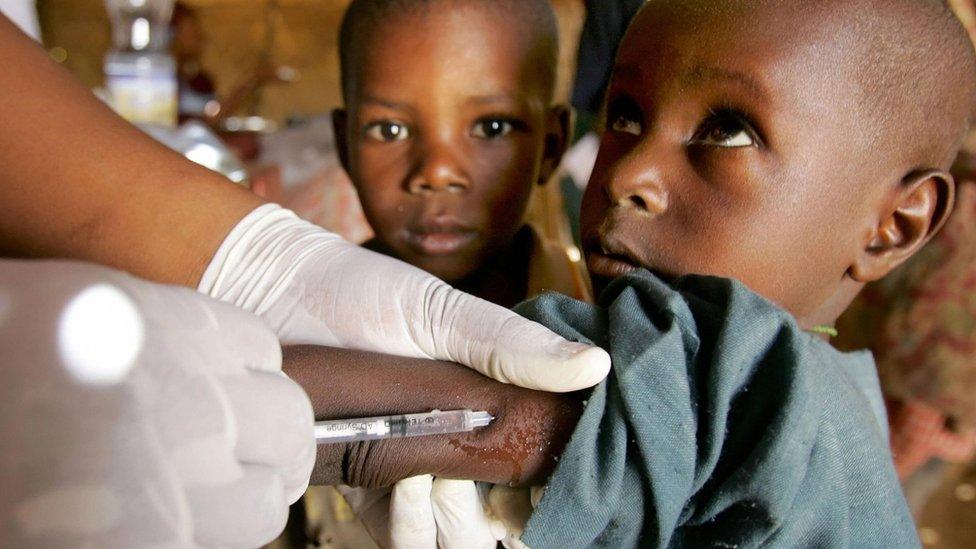Meningitis outbreak kills at least 140 in Nigeria
- Published

Vaccination can prevent meningitis
An outbreak of meningitis in several states of Nigeria has killed at least 140 people, officials say.
It has been reported over the last week in six states and has so far infected more than 1,000 people, the Abuja Centre for Disease Control says.
Meningitis causes an acute inflammation of the outer layers of the brain and spinal cord.
The current outbreak is the worst in Nigeria since 2009 when it killed at least 156 people.
Africa Live: Updates on this and other African stories
The disease is spreading amidst fears it could be out of control if refugee camps, prisons and police cells become affected through crowds, the BBC's Chris Ewokor in Abuja says.
Vaccination is an effective way of preventing against meningitis.
However, a new strain, which may have been imported from a neighbouring country is now prevalent in Nigeria and requires a different type of vaccine, Nigerian Minister of Health Isaac Adewole said.
The seasonal outbreak has been attributed to cold nights, dusty winds and dry weather, which were aggravated by traditional beliefs, poor hygiene, and overpopulation, our reporter says.
Nigeria lies on the meningitis belt, stretching from the Sahel region to the Horn of Africa, where outbreaks occur regularly.
- Published22 November 2010
- Published15 October 2010
